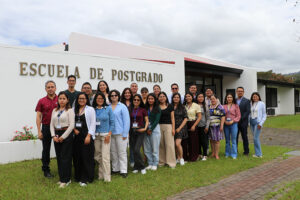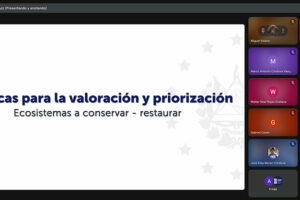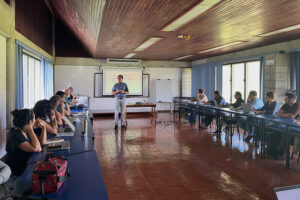Project Strengthened the Capacities of 80 Women in the Green and Blue Economy
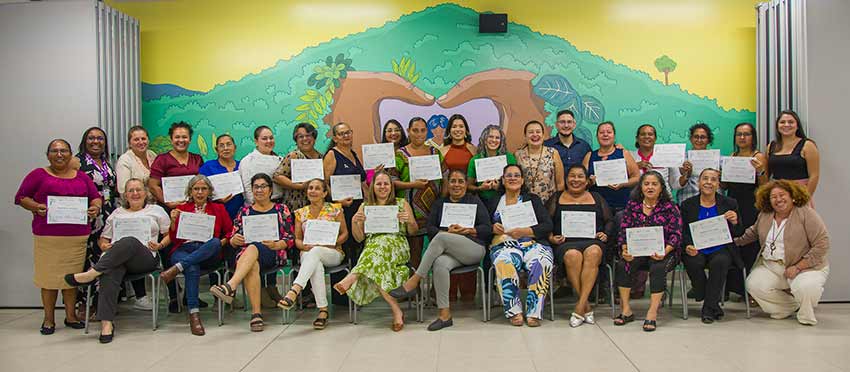
- Project implemented by CATIE represents a direct contribution to the global and regional agenda on gender equality
The project “Strengthening the Capacities of Women for the Development and Management of Enterprises in the Green and Blue Economy in Costa Rica (2024–2025),” implemented by CATIE (Tropical Agricultural Research and Higher Education Center) with financing from the Development Bank of Latin America and the Caribbean (CAF) and strategic support from the National Women’s Institute (INAMU), successfully concluded after one year of training, mentoring, and support for 80 rural and coastal women entrepreneurs in the country.
This initiative was designed in response to international commitments undertaken by Costa Rica under the Paris Agreement and the Kunming-Montreal Global Biodiversity Framework, as well as the guidelines of the National Policy for Effective Equality between Women and Men (2018–2032) and the National Action Plan on Gender Equality in Climate Action.
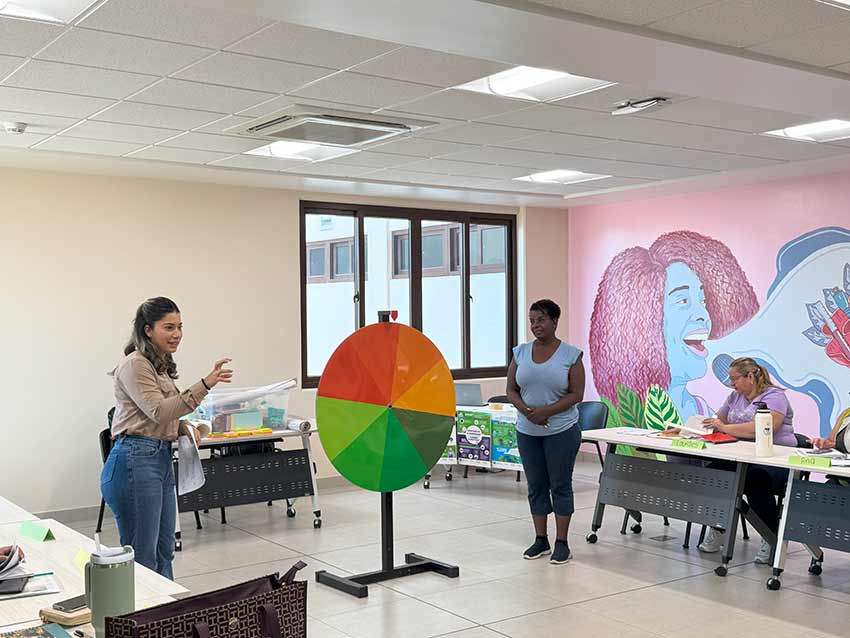
For CAF, this project represents a direct contribution to that global and regional agenda. “Equitable development will only be possible if women are at the center of transformation. We are committed to a model that combines technical training, innovation, and support networks, aligned with our Gender Equality Strategy and our vision as the region’s green bank,” said Bárbara Auricchio, Gender, Inclusion, and Diversity Management Officer at the bank.
The implementation of the project stood out for its innovative “learning by doing” methodology, where participants immediately applied the knowledge to their businesses. Through a hybrid program that combined in-person workshops, virtual capsules, and personalized mentoring, financial, marketing, negotiation, and leadership skills were strengthened.
“Accompanying 80 women across different regions of the country reaffirms our conviction that sustainability is only possible when it goes hand in hand with equity. When women move forward with support networks, leadership, and confidence in their abilities, the resilience of their families, communities, and the entire country also advances,” said Susana Acuña Torres, implementation coordinator at CATIE.
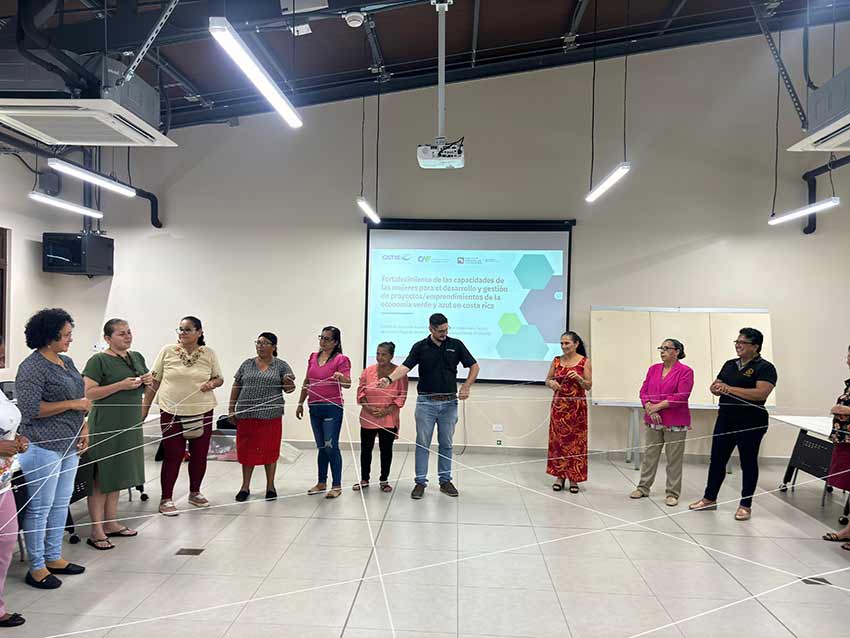
The process had a strong multiplier effect thanks to its “training of trainers” approach, which allowed learning to extend to families and communities. From INAMU, Aimará Ulate Espinoza, advisor to the Executive Presidency of INAMU, emphasized the relevance of this approach:
“The affirmative actions developed strengthened the economic autonomy of women entrepreneurs in green and blue economies, with impacts at the personal, community, and national levels. These processes contribute to closing gender gaps and consolidating women’s leadership in coastal-marine conservation and management.”
The project concluded with four regional meetings in Chorotega, Huetar Caribe, Central Pacific, and Brunca, bringing together more than 30 public, private, and international cooperation institutions and organizations. This institutional articulation opened new opportunities for territorial collaboration and access to differentiated markets, including the creation of a gender label for sustainable goods and services.
For the women entrepreneurs, the process represented not only an opportunity for professional growth but also personal growth. Laura Granados Rodríguez, founder of Ecotico, shared her experience:
“Thanks to the training process, we strengthened our capacities in administrative, financial, and sustainability management. Today we grow not only as businesswomen but also as change agents committed to building a greener and bluer economy that is fairer, more inclusive, and more resilient for Costa Rica,” she concluded.
Thus, the project leaves behind a methodological toolbox, digital support networks, and a replicable training model that makes it possible to scale the experience to other communities in the country. Beyond the knowledge gained, the most valuable outcome was the empowerment of women, who today consolidate their role as change agents and leaders of more resilient, sustainable, and equitable territories.
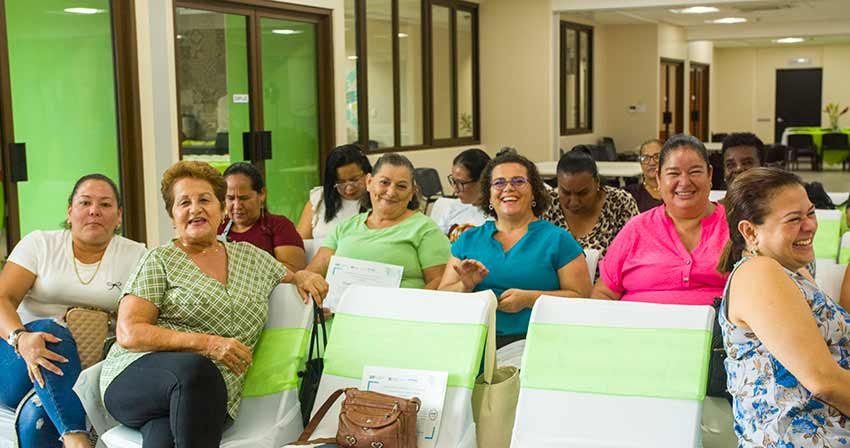
More information/written by:
Susana Acuña Torres
Specialist in Sustainable Agribusiness
Environmental Economics and Sustainable Agribusiness Unit (UEAAS/EfD)
CATIE
susana.acuna@catie.ac.cr

